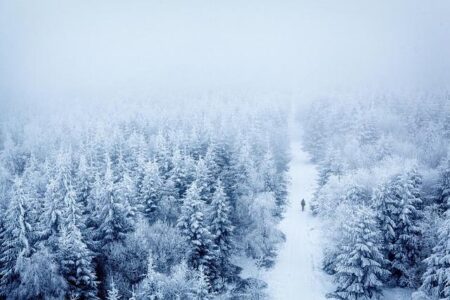In recent years, the passionate world of sports fandom has come under the psychological microscope, revealing intriguing insights into how cheering for a favorite team can impact mental health. While the highs of victory can boost mood and foster a sense of community, the lows of defeat and rivalries may trigger stress, anxiety, and even depression among devoted fans. Psychology experts are now exploring both the benefits and pitfalls of intense sports allegiance, offering practical strategies to help fans maintain emotional balance amid the rollercoaster of wins and losses. This article delves into the complex relationship between sports fandom and mental health, shedding light on how enthusiasts can enjoy the game without compromising their well-being.
The Emotional Rollercoaster of Sports Fandom and Its Impact on Mental Wellbeing
Sports fans often ride a turbulent wave of emotions that mirror their team’s fortunes-from exhilarating highs during victories to crushing lows after defeats. This emotional investment can strengthen community bonds and provide a sense of identity, but it also has the potential to introduce significant psychological stress. Studies reveal that intense fandom can lead to mood swings, sleep disturbances, and increased anxiety, especially when expectations are unmet. The unpredictability of outcomes means fans’ mental states are continually influenced by factors beyond their control, creating a cycle of emotional volatility that can challenge their overall wellbeing.
To navigate this rollercoaster without sacrificing mental health, adopting conscious coping strategies is essential:
- Mindful consumption: Limit exposure to stressful commentary or social media debates.
- Balanced perspective: Remind oneself that sports outcomes don’t define personal worth.
- Community support: Share triumphs and setbacks with fellow fans to process emotions collectively.
- Physical activity: Engage in exercise to offset tension and boost mood chemically.
- Set boundaries: Recognize when fandom begins to interfere with work, relationships, or sleep.
| Emotional Effect | Potential Impact | Recommended Action |
|---|---|---|
| Excitement | Energy boost, social bonding | Celebrate with friends, channel positivity |
| Frustration | Irritability, anxiety | Practice deep breathing, take breaks |
| Disappointment | Sadness, decreased motivation | Engage in hobbies, seek social support |
| Obsessive focus | Neglect of responsibilities | Set time limits, prioritize tasks |
Understanding the Social Connections and Community Benefits of Being a Sports Fan
The Power of Shared Passion
Joining the ranks of a passionate sports community often leads to a sense of belonging that transcends the game itself. Fans share more than just scores; they share rituals, memories, and emotions that forge strong social connections. These interactions, whether at a stadium, in local pubs, or online forums, nurture friendships and collective identity. Participating in these social networks offers emotional support and camaraderie, which are vital for mental well-being.
Moreover, the communal nature of fandom creates spaces for engagement across age, culture, and background, promoting inclusivity. Benefits extend beyond emotional boosts, as studies suggest that active sports fans often report higher life satisfaction. The table below highlights key community benefits tied to sports fandom, emphasizing why this social involvement matters:
| Benefit | Description |
|---|---|
| Emotional Resilience | Shared victories and setbacks help fans process emotions collectively. |
| Social Support | Friendships formed through fandom provide a network during stressful times. |
| Identity Formation | Belonging to a fan community strengthens individual and group identity. |
| Cross-Cultural Exchange | Fandom bridges diverse cultural backgrounds, fostering understanding. |
Fostering Balance Through Community
While sports fandom can enrich one’s life, maintaining balance is crucial to avoid emotional overinvestment that may cause stress or disappointment. Engaging with the community helps fans keep perspective by sharing experiences and normalizing ups and downs. Healthy fandom involves setting boundaries, such as limiting screen time and diversifying interests.
Integrating social aspects with self-awareness creates a sustainable fandom experience, allowing mental health benefits to flourish without tipping into fanaticism. Practical steps for balanced engagement include:
- Setting time limits for watching games and engaging online
- Participating in other hobbies and social activities
- Being mindful of emotional reactions and seeking support when needed
- Avoiding excessive gambling or spending related to fandom
- Connecting with diverse groups to broaden perspectives
Would you like me to integrate this or customize it further?
Recognizing When Sports Fandom Turns Harmful to Your Mental Health
When the excitement of cheering for a favorite team begins to overshadow daily life, it may be time to pause and reflect. Signs that sports enthusiasm is tipping into harm include constant anxiety about game outcomes, irritability following losses, or neglecting personal responsibilities. Fans might experience mood swings tied directly to their team’s performance, which can disrupt relationships and overall wellbeing. Such emotional rollercoasters often mask deeper stress and can contribute to burnout or chronic dissatisfaction.
It’s important to stay vigilant for behavioral changes such as:
- Obsessive thinking: Relentless focus on statistics, rumors, or future matches at the expense of other interests.
- Social isolation: Withdrawing from friends or family who do not share the same sports passion.
- Physical symptoms: Experiencing headaches, insomnia, or appetite changes linked to game stress.
- Financial strain: Overspending on merchandize, tickets, or bets despite economic impact.
| Warning Signs | Potential Impact |
|---|---|
| Mood dependency on wins/losses | Emotional instability |
| Neglecting personal goals | Reduced productivity |
| Financial overcommitment | Money-related stress |
| Avoiding social interactions | Loneliness and isolation |
Practical Strategies to Maintain Balance and Foster Healthy Sports Engagement
Managing your passion for sports requires intentionality and self-awareness. Establishing clear boundaries can prevent fandom from tipping into obsessive behavior that may impact mental health negatively. Prioritize activities that promote mindfulness and emotional regulation, such as meditation or journaling, especially during emotionally charged games. Engaging with sports in moderation-like limiting how much time you spend watching or following fans groups online-helps maintain perspective and reduces stress. Additionally, staying physically active beyond just being a spectator not only boosts overall well-being but fosters a healthier connection to the world of sports.
Building a supportive community around sports can also nurture balanced involvement. Sharing experiences with friends or family who understand the emotional highs and lows allows for healthier emotional expression. Consider these practical steps:
- Set time limits for game day activities and fan engagement.
- Alternate hobbies to diversify interests and reduce fixation.
- Practice self-checks to identify when fandom is affecting mood or behavior.
- Seek professional help if obsessive tendencies or anxiety escalate.
| Strategy | Benefit |
|---|---|
| Time Management | Reduces stress and maintains life balance |
| Physical Activity | Improves mood beyond fandom emotions |
| Social Support | Provides healthy emotional outlets |
| Self-monitoring | Detects early signs of unhealthy obsession |
Concluding Remarks
As interest in the psychological impact of sports fandom grows, it becomes clear that while supporting a team can offer community and emotional highs, it also carries risks for mental well-being. Maintaining balance through mindful engagement and self-awareness is crucial for fans to enjoy the social and emotional benefits without falling prey to stress or anxiety. As research continues to shed light on this complex relationship, experts encourage fans to stay attuned to their mental health and seek support when needed-ensuring that the passion for the game remains a positive force in their lives.





